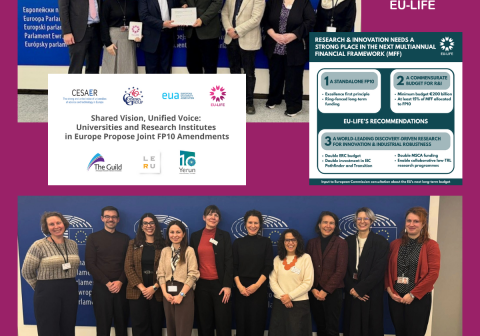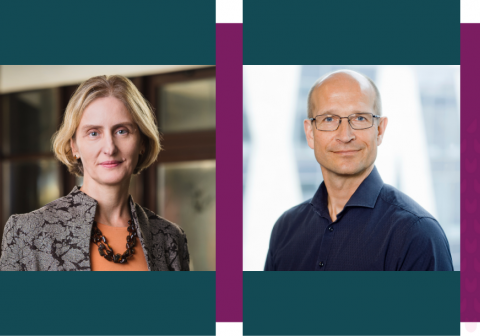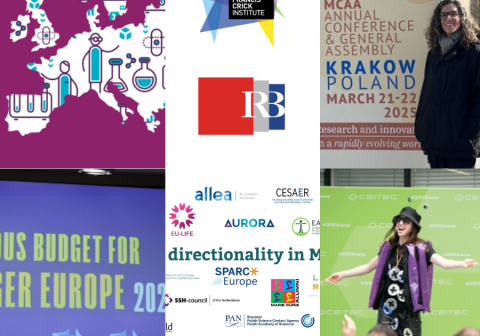EU-LIFE holds webinar on Research Assessment
EU-LIFE launched a Policy Webinar Series this year with the aim to deepen the alliance contribution to key European policies and promote bridges between the policy and scientific communities on relevant topics in research & innovation.
The second webinar 'Moving forward in research assessment - perspectives from research institutes, researchers and funders', was held on Thursday 28 October 2021. It was attended by 143 participants from 23 different countries from Europe and beyond. You can watch the full webinar in EU-LIFE’s Youtube channel.
Marta Agostinho, EU-LIFE Coordinator, welcomed all and gave a brief introduction, while Michela Bertero, EU-LIFE’s representative for open science and Head of International & Scientific Affairs at CRG, moderated the event. The programme was organised around three panels:
- Why do we evaluate research organisations? What and how do we measure? What are the shortcomings of the assessment system and how do we overcome them collectively?
- Johan van de Gronden, Director of the Dutch Cancer Society (KWF)
- Rene Medema, EU-LIFE Chair and Scientific Director of NKI
- Why do we evaluate individual researchers? What and how should we evaluate them? What are the obstacles to change the current evaluation system of researchers? What are the gains?
- Paola Bovolenta, ERC Scientific Council Member and Research Professor at the Center for Molecular Biology Severo Ochoa, CSIC-UAM
- Monica Bettencourt Dias, Co-Chair of EU-LIFE and Director of IGC
- How are policy makers influencing the future of research evaluation? What responsibility do funding agencies hold for changing research assessment?
- Kostas Glinos, Head of Unit for Open Science, DG Research & Innovation, European Commission
- Ignasi López Verdeguer, Director of the Department of Research & Innovation, La Caixa Foundation
The Q&A session focused on the need to engage all actors in a dialogue and learning process to rise to the challenges for a fairer assessment system. Diversity was recognised as an essential part of the system, where common criteria should be adapted to each case since context and impact are different depending on several factors, for example, the discipline and the stage of the research, be it curiosity-driven research or research with a more immediate societal impact.
The panel also discussed the need to acknowledge the systemic level beyond individual evaluation as well as how to develop strategies to evaluate collaborative aspects of research, such as contribution of researchers to team science. Another discussion topic was how to recognise and avoid reviewers’ biases, and how to bring new elementslike open science, reproducibility, conduct and behaviour, into the equation.
Topics for forthcoming EU-LIFE webinars include gender balance & inclusivity in science and the role of research institutes in the research & innovation ecosystem. Stay tuned for updates!
Thank you @EULIFE_news for a very enriching panel, and @MichelaBertero @Meagostinho for excellent facilitation. https://t.co/xib9EDccJY
— Ignasi López Verdeg. (@ignasilopezv) October 28, 2021
Great to see good #DORA practice promoting #OpenScience from @IGCcentrioles talking on #ResearchAssessment as part of @EULIFE_news webinar. pic.twitter.com/kDau61kjk1
— Cheryl Smythe (@cdws100) October 28, 2021



